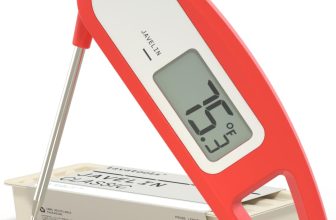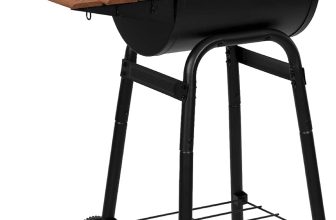
Best Mediterranean Diet Cookbook for Seniors: Review healthy dinner recipes – Didiar
The Best Mediterranean Diet Cookbook for Seniors: A Recipe for Healthy Living
The Mediterranean diet, renowned for its heart-healthy benefits and delicious flavors, is an excellent choice for seniors looking to improve their overall well-being. It emphasizes fresh fruits, vegetables, whole grains, lean protein, and healthy fats like olive oil, all contributing to a balanced and nutritious lifestyle. But navigating the world of cookbooks can be overwhelming, especially when looking for recipes tailored to the specific needs and preferences of seniors. This article explores the best Mediterranean diet cookbooks for seniors, focusing on ease of use, nutritional value, and delicious, accessible recipes. We’ll delve into what makes a cookbook senior-friendly, highlight specific cookbooks, and offer practical tips for incorporating the Mediterranean diet into daily life.
What Makes a Great Mediterranean Diet Cookbook for Seniors?
Not all cookbooks are created equal, especially when considering the needs of seniors. A truly great Mediterranean diet cookbook for this demographic should prioritize the following aspects:
-
Large, Easy-to-Read Print: Vision can decline with age, so large, clear font sizes are essential for comfortable reading. Recipes shouldn’t require straining to decipher.
-
Simple, Step-by-Step Instructions: Complex recipes with numerous steps can be daunting. The best cookbooks break down instructions into manageable, easy-to-follow sequences. Clarity and conciseness are key.
-
Nutritional Information: Seniors often need to manage specific dietary requirements, such as sodium intake, cholesterol levels, or fiber content. Cookbooks should provide detailed nutritional information per serving, including calories, fat, protein, carbohydrates, fiber, and sugar.
-
Adaptable Recipes: Many seniors have specific dietary restrictions or preferences due to health conditions or personal taste. Cookbooks should offer tips for adapting recipes to accommodate these needs, such as substituting ingredients or adjusting portion sizes.
-
Emphasis on Fresh, Whole Foods: The Mediterranean diet is all about fresh, unprocessed ingredients. The cookbook should highlight recipes that utilize seasonal produce and lean proteins, minimizing processed foods and added sugars.
-
Budget-Friendly Options: Maintaining a healthy diet shouldn’t break the bank. The best cookbooks will include recipes that are both nutritious and affordable, using readily available ingredients.
-
Easy-to-Find Ingredients: Recipes calling for obscure or hard-to-find ingredients are impractical. The cookbook should focus on ingredients that are easily accessible at most grocery stores.
-
Focus on Common Health Concerns: Many seniors deal with issues like heart health, diabetes, or joint pain. Cookbooks that offer recipes specifically tailored to address these concerns are particularly valuable.
-
Visual Appeal: Appetizing photos can inspire seniors to try new recipes. High-quality images showcasing the finished dishes can make the cookbook more engaging and motivating.
- Durable and Easy-to-Handle Design: A cookbook that lays flat and is resistant to spills is a bonus in the kitchen. Consider cookbooks with spiral binding or wipeable covers.
Top Mediterranean Diet Cookbooks Designed for Seniors
Let’s examine some of the best Mediterranean diet cookbooks designed with seniors in mind. We’ll compare their features and highlight what makes each one stand out.
1. The Complete Mediterranean Diet Cookbook for Seniors: Delicious and Easy Recipes to Live a Healthy and Fulfilling Life
-
Highlights: This cookbook specifically targets seniors, offering recipes designed to be both easy to prepare and beneficial for common age-related health concerns. It features large print, clear instructions, and comprehensive nutritional information. The recipes are adaptable, allowing for customization based on individual dietary needs.
-
Example Recipe: Lemon Herb Baked Salmon with Roasted Asparagus
-
Pros:
- Extremely senior-focused
- Adaptable recipes
- Detailed nutritional information
- Large print format
- Cons:
- May not be as visually appealing as some other cookbooks
- Focus on simplicity may limit the variety of dishes
2. The Mediterranean Diet Cookbook for Beginners: Meal Plans, Expert Guidance, and 100 Healthy Recipes to Get You Started
-
Highlights: While not specifically targeted at seniors, this cookbook is excellent for beginners to the Mediterranean diet. Its clear explanations of the diet’s principles, combined with simple recipes and meal plans, make it accessible to all ages. It also has a section dedicated to stocking your pantry and navigating the grocery store.
-
Example Recipe: Chicken Souvlaki with Tzatziki Sauce
-
Pros:
- Beginner-friendly with clear explanations
- Includes meal plans
- Easy-to-find ingredients
- Good variety of recipes
- Cons:
- Not specifically designed for seniors
- Print size may be smaller than ideal for some seniors
3. The 30-Minute Mediterranean Diet Cookbook: 100 Easy, Healthy Recipes for Lifelong Wellness
-
Highlights: This cookbook focuses on quick and easy recipes, making it ideal for seniors who may have limited time or energy. The recipes are designed to be prepared in 30 minutes or less, without sacrificing flavor or nutritional value.
-
Example Recipe: Shrimp Scampi with Zucchini Noodles
-
Pros:
- Quick and easy recipes
- Suitable for busy individuals
- Emphasis on healthy ingredients
- Cons:
- May rely on some pre-prepared ingredients to save time
- Not specifically designed for seniors
4. The Mediterranean Diet Cookbook: A Deliciously Healthy Approach to Weight Loss and Wellness
-
Highlights: This cookbook emphasizes the weight loss benefits of the Mediterranean diet. It provides healthy and flavorful recipes that are low in calories and high in nutrients. While weight loss may not be a primary concern for all seniors, the focus on overall wellness and healthy ingredients makes it a good choice.
-
Example Recipe: Baked Cod with Tomatoes, Olives, and Capers
-
Pros:
- Focus on healthy weight management
- Delicious and flavorful recipes
- Easy-to-follow instructions
- Cons:
- Weight loss focus may not appeal to all seniors
- Portion sizes may need to be adjusted for individual needs
Comparative Analysis:
| Feature | The Complete Mediterranean Diet Cookbook for Seniors | The Mediterranean Diet Cookbook for Beginners | The 30-Minute Mediterranean Diet Cookbook | The Mediterranean Diet Cookbook: A Deliciously Healthy Approach to Weight Loss and Wellness |
|---|---|---|---|---|
| Target Audience | Seniors | Beginners | Busy individuals | Individuals seeking weight loss |
| Print Size | Large | Standard | Standard | Standard |
| Recipe Complexity | Simple | Simple | Simple | Moderate |
| Nutritional Info | Comprehensive | Comprehensive | Comprehensive | Comprehensive |
| Adaptability | High | Moderate | Moderate | Moderate |
| Cooking Time | Varies | Varies | 30 minutes or less | Varies |
| Special Focus | Age-related health concerns | Introductory guidance | Speed and convenience | Weight management |
Easy and Delicious Mediterranean Dinner Recipes for Seniors
Here are a few examples of simple and healthy Mediterranean dinner recipes that are perfect for seniors, along with considerations for adapting them to specific needs:
1. Baked Chicken with Lemon and Herbs:
- Ingredients: Chicken breasts, olive oil, lemon juice, garlic, rosemary, thyme, salt, pepper.
- Instructions: Preheat oven to 375°F (190°C). Drizzle chicken breasts with olive oil and lemon juice. Season with minced garlic, rosemary, thyme, salt, and pepper. Bake for 25-30 minutes, or until chicken is cooked through.
- Adaptations: For seniors with chewing difficulties, consider using boneless, skinless chicken thighs, which are more tender. Reduce sodium content by using low-sodium herbs and spices. Add chopped vegetables like bell peppers, zucchini, or onions for added nutrients and flavor.
2. Lentil Soup:
- Ingredients: Lentils, vegetable broth, diced tomatoes, carrots, celery, onion, garlic, olive oil, cumin, coriander, salt, pepper.
- Instructions: Heat olive oil in a large pot. Add diced carrots, celery, and onion and sauté until softened. Add minced garlic, cumin, and coriander and cook for another minute. Add lentils, vegetable broth, and diced tomatoes. Bring to a boil, then reduce heat and simmer for 30-40 minutes, or until lentils are tender. Season with salt and pepper.
- Adaptations: For seniors with digestive issues, ensure the lentils are thoroughly cooked to avoid gas and bloating. Puree the soup for a smoother texture if needed. Add a squeeze of lemon juice for brightness and added Vitamin C.
3. Baked Fish with Vegetables:
- Ingredients: White fish fillets (cod, halibut, or tilapia), olive oil, lemon slices, mixed vegetables (broccoli, cauliflower, carrots), garlic, herbs (dill, parsley), salt, pepper.
- Instructions: Preheat oven to 400°F (200°C). Toss mixed vegetables with olive oil, garlic, herbs, salt, and pepper. Spread vegetables on a baking sheet. Place fish fillets on top of the vegetables. Top each fillet with lemon slices. Bake for 15-20 minutes, or until fish is cooked through and vegetables are tender.
- Adaptations: Choose fish fillets that are easy to chew. Steam the vegetables beforehand if they are difficult to chew. Use a baking dish instead of a baking sheet to prevent vegetables from drying out.
Incorporating the Mediterranean Diet into Daily Life: Practical Tips
Making the transition to the Mediterranean diet can be easier than you think. Here are some practical tips for seniors:
- Start Slowly: Don’t try to overhaul your entire diet overnight. Begin by making small, gradual changes, such as swapping butter for olive oil or adding more vegetables to your meals.
- Focus on Flavor: The Mediterranean diet is full of delicious flavors. Experiment with different herbs, spices, and cooking techniques to find recipes you enjoy.
- Plan Your Meals: Planning your meals in advance can help you stay on track and avoid unhealthy impulse choices.
- Stock Your Pantry: Keep your pantry stocked with healthy Mediterranean staples, such as olive oil, whole grains, legumes, nuts, and seeds.
- Shop Smart: Shop for fresh, seasonal produce whenever possible. Look for sales and discounts to save money.
- Cook in Batches: Prepare large batches of meals on the weekends to have healthy options available throughout the week.
- Embrace Healthy Snacks: Choose healthy snacks like fruits, vegetables, nuts, or yogurt to keep you feeling full and satisfied between meals.
- Stay Hydrated: Drink plenty of water throughout the day.
- Consult with a Healthcare Professional: Talk to your doctor or a registered dietitian before making any significant changes to your diet, especially if you have any underlying health conditions.
- Make it Social: Invite friends or family members to join you for Mediterranean meals. Sharing healthy meals with others can make the experience more enjoyable and motivating.
The Benefits of the Mediterranean Diet for Seniors
The Mediterranean diet offers a wide range of health benefits, particularly for seniors. These benefits include:
- Improved Heart Health: The diet’s emphasis on healthy fats, fiber, and antioxidants can help lower cholesterol levels and reduce the risk of heart disease.
- Reduced Risk of Type 2 Diabetes: The diet’s focus on whole grains, vegetables, and lean protein can help regulate blood sugar levels and improve insulin sensitivity.
- Weight Management: The diet’s emphasis on whole foods and portion control can help seniors maintain a healthy weight.
- Improved Brain Health: The diet’s antioxidants and healthy fats can help protect against cognitive decline and reduce the risk of Alzheimer’s disease.
- Reduced Risk of Certain Cancers: The diet’s high intake of fruits, vegetables, and whole grains has been linked to a lower risk of certain cancers, such as colon cancer and breast cancer.
- Stronger Bones: The diet’s calcium-rich foods, such as dairy and leafy green vegetables, can help maintain bone density and reduce the risk of osteoporosis.
- Reduced Inflammation: The diet’s anti-inflammatory compounds can help reduce inflammation throughout the body, which can alleviate symptoms of arthritis and other inflammatory conditions.
- Improved Mood: Studies have shown that the Mediterranean diet can improve mood and reduce the risk of depression.
AI Robots for Seniors can also support a healthy lifestyle by providing reminders for medication, encouraging physical activity, and offering companionship.
FAQ: Mediterranean Diet Cookbooks for Seniors
Q1: Why is the Mediterranean diet considered healthy for seniors?
The Mediterranean diet is highly beneficial for seniors because it prioritizes whole, unprocessed foods known for their health-promoting properties. It is rich in fruits, vegetables, whole grains, legumes, nuts, seeds, and olive oil, providing a wealth of vitamins, minerals, antioxidants, and healthy fats. This dietary pattern is associated with numerous health benefits relevant to seniors, including improved heart health, reduced risk of type 2 diabetes, weight management, enhanced brain function, and decreased inflammation. By focusing on nutrient-dense foods and limiting processed items, the Mediterranean diet helps seniors maintain their overall health and well-being, addressing some of the common age-related health concerns.
Q2: What should I look for in a Mediterranean diet cookbook specifically designed for seniors?
When choosing a Mediterranean diet cookbook for seniors, prioritize cookbooks with large, easy-to-read print, simple, step-by-step instructions, and comprehensive nutritional information for each recipe. Adaptable recipes are also essential, allowing for modifications to accommodate specific dietary needs or preferences. Look for cookbooks that emphasize fresh, whole foods and budget-friendly options, as well as recipes that address common health concerns for seniors, such as heart health or diabetes management. Visual appeal, such as high-quality images of the dishes, can also be motivating, and a durable, easy-to-handle design is a plus.
Q3: Are there any specific ingredients I should avoid or limit when following the Mediterranean diet as a senior?
While the Mediterranean diet is generally healthy, there are some ingredients that seniors should consume in moderation or avoid altogether. These include processed foods, sugary drinks, refined grains (such as white bread and pasta), and excessive amounts of red meat. Limiting sodium intake is also crucial for seniors with high blood pressure. Furthermore, individuals with specific health conditions, such as kidney disease, may need to adjust their protein intake. It’s always best to consult with a healthcare professional or registered dietitian to determine the specific dietary needs and restrictions that are appropriate for your individual health status.
Q4: How can I adapt Mediterranean diet recipes to accommodate common age-related health conditions like diabetes or heart disease?
Adapting Mediterranean diet recipes to accommodate health conditions like diabetes or heart disease is often straightforward. For diabetes, focus on using whole grains, limiting sugary ingredients, and controlling portion sizes to manage blood sugar levels. Choose lean protein sources and incorporate plenty of non-starchy vegetables. For heart disease, prioritize healthy fats like olive oil and limit saturated and trans fats found in red meat and processed foods. Reduce sodium intake by using low-sodium ingredients and avoiding processed foods high in salt. Consulting a registered dietitian can provide personalized guidance on adapting recipes to meet specific dietary requirements and health goals.
Q5: Can the Mediterranean diet help with weight management for seniors?
Yes, the Mediterranean diet can be an effective approach to weight management for seniors. It emphasizes whole, unprocessed foods that are naturally lower in calories and higher in nutrients and fiber, which promote satiety and help control hunger. The diet’s focus on healthy fats, such as olive oil, can also contribute to feelings of fullness and satisfaction. By following the principles of the Mediterranean diet, seniors can reduce their overall calorie intake, improve their metabolism, and lose weight gradually and sustainably. Combining the diet with regular physical activity can further enhance weight management efforts.
Q6: Is it expensive to follow the Mediterranean diet?
Following the Mediterranean diet doesn’t have to be expensive. By focusing on seasonal produce, buying in bulk when possible, and utilizing affordable protein sources like legumes and eggs, you can keep your grocery bill in check. Canned and frozen fruits and vegetables are also nutritious and budget-friendly options. Planning your meals in advance and creating a shopping list can help you avoid impulse purchases and minimize food waste. With careful planning and smart shopping strategies, you can enjoy the health benefits of the Mediterranean diet without breaking the bank.
Q7: What are some easy Mediterranean diet snack ideas for seniors?
Easy and healthy Mediterranean diet snack ideas for seniors include a handful of nuts (almonds, walnuts, or pistachios), a piece of fruit (apple, orange, or berries), a small bowl of Greek yogurt with berries and honey, a hard-boiled egg, or vegetable sticks (carrots, celery, or cucumber) with hummus. These snacks are nutrient-dense, satisfying, and easy to prepare, providing a healthy alternative to processed snacks high in sugar and unhealthy fats. They are also portable and convenient, making them ideal for on-the-go snacking.
Q8: How can I get started with the Mediterranean diet if I’m a complete beginner?
If you’re new to the Mediterranean diet, start by gradually incorporating more fruits, vegetables, whole grains, and healthy fats into your meals. Begin by making small swaps, such as using olive oil instead of butter or adding a side salad to your lunch. Experiment with new recipes and flavors to find meals that you enjoy. Focus on learning the basic principles of the diet and making sustainable lifestyle changes. Consider consulting with a registered dietitian or nutritionist to create a personalized meal plan and receive guidance on making the transition to the Mediterranean diet. Remember, the key is to make gradual, sustainable changes that you can maintain long-term.








